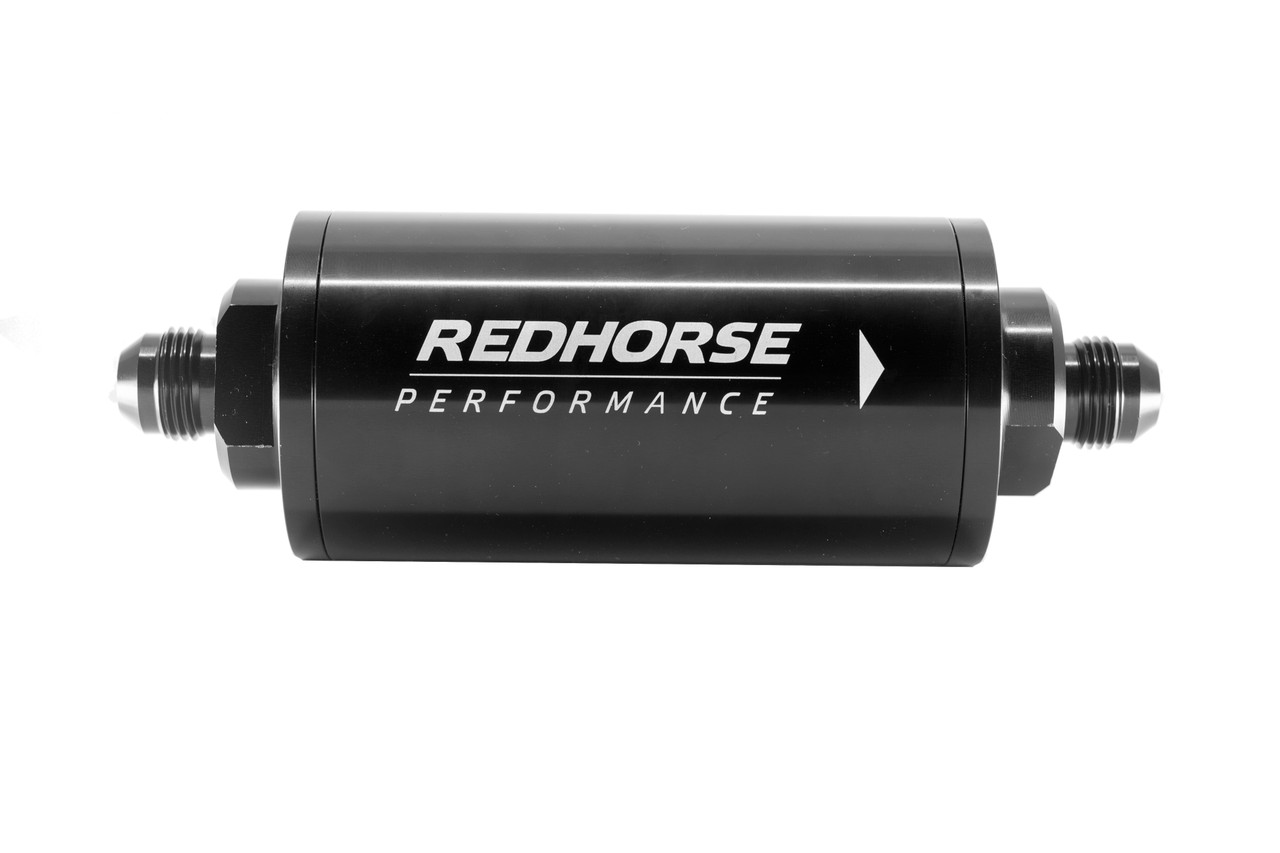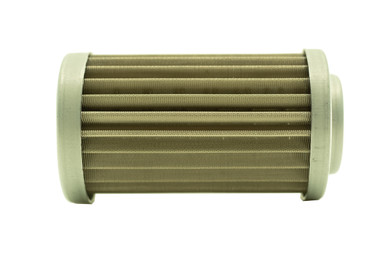How an Inline Fuel Filter Can Improve Your Engine Performance
Aug 7th 2025
What Is an Inline Fuel Filter?
An inline fuel filter is a critical component in your vehicle's fuel system that sits between the fuel tank and engine, designed to remove contaminants and debris from fuel before it reaches sensitive fuel injectors and combustion chambers. Unlike integrated filters built into fuel pumps or fuel tanks, inline fuel filters are separate units that can be easily accessed and replaced as part of regular maintenance.
How an Inline Fuel Filter Works
Inline fuel filters operate on a simple yet effective principle of mechanical filtration. As fuel flows from the fuel tank toward the engine, it passes through the filter's specialized media, which traps contaminants while allowing clean fuel to continue its journey. The filter element typically consists of pleated paper, synthetic materials, or metal mesh designed to capture particles of specific sizes.

Key Ways an Inline Fuel Filter Improves Engine Performance
Delivers Cleaner Fuel to the Engine
The primary function of any fuel filter is removing contaminants that could interfere with proper combustion. A quality inline fuel filter ensures that fuel injectors receive consistently clean fuel, free from particles that could clog their precision openings. This clean fuel delivery is essential for maintaining proper spray patterns and fuel atomization.
When fuel injectors receive contaminated fuel, their tiny orifices can become partially blocked, leading to uneven fuel distribution and poor combustion characteristics. Clean fuel from an effective inline fuel filter prevents these issues, ensuring each cylinder receives the precise amount of fuel needed for optimal combustion.
Enhances Combustion Efficiency
Clean fuel burns more completely and efficiently than contaminated fuel, directly impacting engine performance and fuel efficiency. When an inline fuel filter removes water, dirt, and other contaminants, the resulting clean fuel provides consistent combustion characteristics that allow the engine management system to optimize timing and fuel delivery.
Improved combustion efficiency translates to better throttle response, smoother acceleration, and more consistent power delivery across the engine's operating range. This enhanced efficiency also contributes to reduced emissions and better overall environmental performance.
Protects Fuel System Components
Beyond the engine itself, inline fuel filters protect expensive fuel system components including fuel pumps, fuel injectors, and pressure regulators. Contaminants that bypass filtration can cause premature wear on these precision components, leading to costly repairs and reduced system reliability.
Fuel pumps are particularly vulnerable to contamination, as particles can damage internal components and reduce pumping efficiency. A clogged fuel filter may cause the fuel pump to work harder, but this extra effort is preferable to allowing contaminants to reach and damage the pump's internal mechanisms.
Promotes Smoother Engine Operation
Consistent fuel quality provided by an effective inline fuel filter results in smoother engine operation across all RPM ranges. Clean fuel ensures that each combustion cycle receives the same quality fuel, eliminating variations that could cause rough idling, hesitation, or irregular engine behavior.
This smooth operation is particularly noticeable during idle and low-speed driving conditions, where fuel quality variations become most apparent. Drivers often report improved idle quality and reduced vibration after installing a new replacement fuel filter.
Reduces Risk of Engine Damage
Contaminated fuel can cause serious internal engine damage over time. Water in fuel can lead to corrosion of internal components, while abrasive particles can score cylinder walls, damage pistons, and accelerate wear on valves and valve seats. An inline fuel filter serves as crucial protection against these potentially catastrophic problems.
The cost of a quality fuel filter and regular replacement is minimal compared to the expense of major engine repairs caused by fuel contamination. This preventive approach to engine protection represents one of the most cost-effective maintenance investments vehicle owners can make.
Signs Your Fuel Filter Needs Replacing
Several symptoms indicate when your inline fuel filter requires replacement. Reduced engine performance, particularly during acceleration or under load, often signals a restricted fuel filter that's limiting fuel flow to the engine. Engine hesitation, stumbling, or stalling can also indicate inadequate fuel delivery due to a clogged fuel filter.
Common Causes of Fuel Filter Clogging

Dirty fuel or contaminants
Poor fuel quality represents the most common cause of premature fuel filter clogging. Fuel contamination can occur at various points in the supply chain, from refinery storage to gas station tanks. Water contamination is particularly problematic, as it can promote bacterial growth and corrosion within the fuel system.
Diesel engines are especially susceptible to fuel contamination issues, as diesel fuel naturally attracts more water and contaminants than gasoline. Regular fuel filter replacement becomes even more critical for diesel applications to maintain optimal engine performance.
Corrosion in the fuel tank
Internal fuel tank corrosion creates rust particles and debris that can quickly clog inline fuel filters. Older vehicles or those that have sat unused for extended periods are particularly susceptible to this issue. Water contamination accelerates corrosion, creating a cycle where corrosion produces more debris that further contaminates the fuel.
Regular inspection and maintenance of the fuel tank can help identify corrosion issues before they cause fuel filter problems. In severe cases, fuel tank replacement or professional cleaning may be necessary to eliminate the source of contamination.
Aging fuel lines or components
Deteriorating fuel lines, particularly rubber components, can shed particles into the fuel stream that quickly overwhelm inline fuel filters. Age-related breakdown of fuel system components creates ongoing contamination that no filter can completely manage without frequent replacement.
Upgrading to modern fuel line materials and components, such as those offered with Redhorse fittings, can significantly reduce contamination from aging fuel system parts while improving overall system reliability and performance.
When and How to Replace Your Inline Fuel Filter
Replacement Intervals
Most manufacturers recommend checking inline fuel filters every year, depending on driving conditions and fuel quality. Vehicles operating in dusty environments or those frequently using lower-quality fuel may require more frequent filter replacement to maintain optimal performance. Regular replacement based on mileage intervals prevents the gradual performance degradation that occurs as filters become increasingly restricted. Proactive replacement is more cost-effective than waiting for symptoms to appear.
Safety Tips
Fuel filter replacement requires careful attention to safety procedures due to the presence of flammable fuel and pressurized fuel lines. Always relieve fuel system pressure before beginning work and ensure adequate ventilation to prevent fuel vapor accumulation.
Use proper fuel filter brackets and mounting hardware to secure the new filter in the correct orientation. Improper mounting can lead to filter damage or fuel leaks that create safety hazards and performance problems.
After installation, check all connections for leaks and verify proper fuel flow before returning the vehicle to service. A fuel pressure test can confirm that the new filter is properly installed and not restricting fuel flow.
Conclusion
An inline fuel filter represents one of the most important yet often overlooked components in maintaining optimal engine performance. By delivering consistently clean fuel to sensitive fuel system components, these filters protect against damage while ensuring efficient combustion and smooth engine operation.
Whether you're maintaining a daily driver or building a high-performance application, don't underestimate the impact that a quality inline fuel filter can have on your engine's performance and longevity. Make fuel filter replacement a regular part of your maintenance routine to ensure your engine continues to perform at its best.
